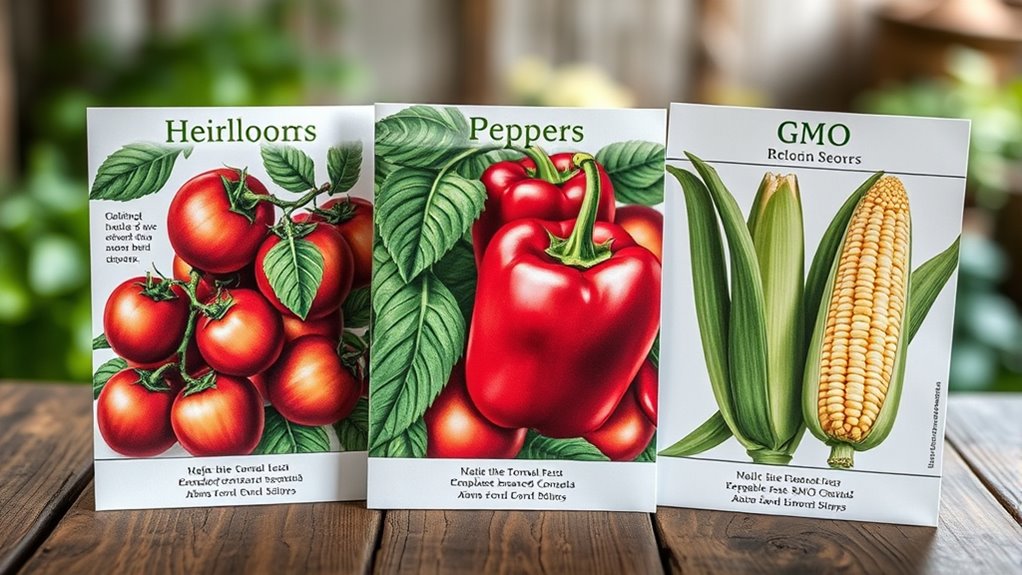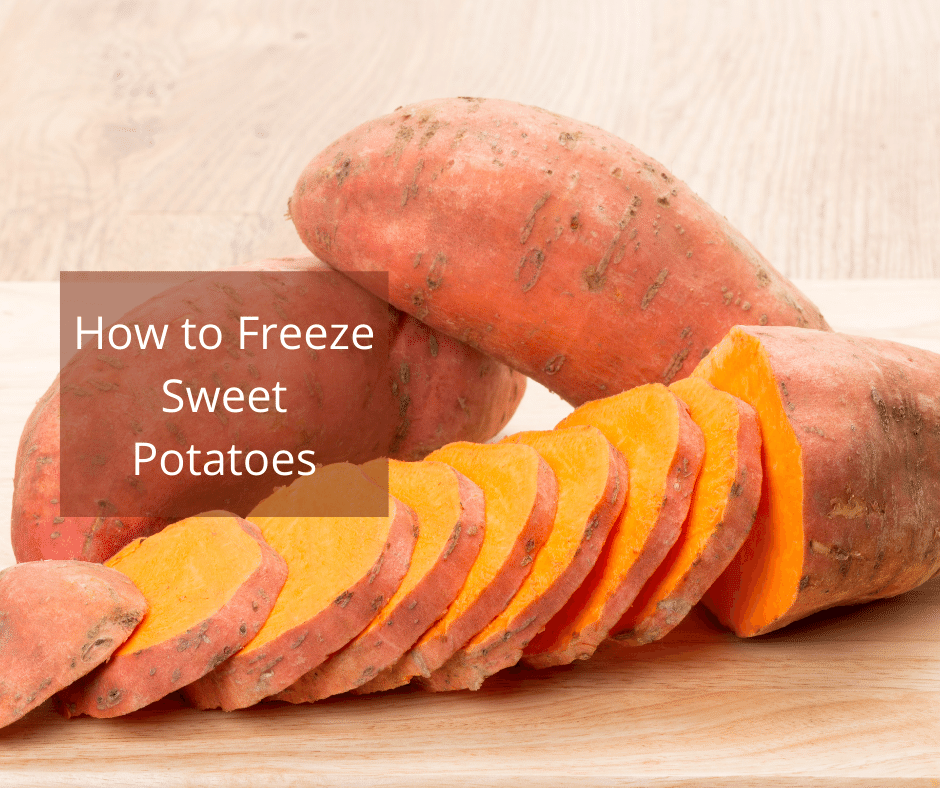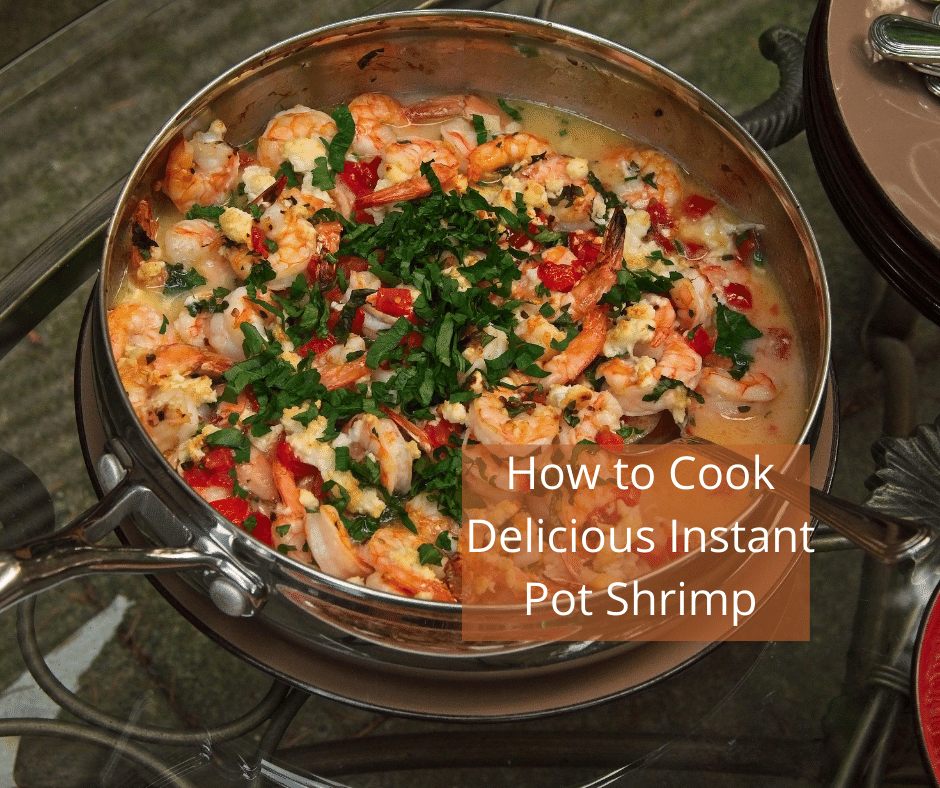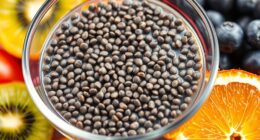Understanding seed labels helps you choose the right seeds for your garden. Heirloom seeds are passed down through generations and grow true-to-type, offering authenticity and genetic diversity. Hybrid seeds are made by crossing varieties for specific traits like disease resistance but may not breed true. GMO seeds are genetically modified for desirable features, often in large-scale farming. Knowing what these labels mean guarantees you get the quality and type of seeds that match your gardening goals. Keep exploring to learn more.
Key Takeaways
- Heirloom seeds are open-pollinated, true-to-type, and often passed down through generations, valued for flavor and genetic diversity.
- Hybrid seeds are created by crossing two varieties, offering specific traits but may not produce true plants from saved seeds.
- GMO seeds are genetically modified for traits like pest resistance, with labels crucial for transparency and informed purchasing.
- Accurate seed labels help identify seed type, quality, and suitability, preventing mislabeling and ensuring gardening success.
- Understanding label differences ensures you select the right seed type—heirloom, hybrid, or GMO—for your gardening goals.

Seed labels provide essential information about the seeds you purchase, helping you make informed planting decisions. Understanding the seed label significance is critical because it directly affects your gardening success. A clear, accurate label can tell you the seed type, expected plant traits, and how best to care for them. However, labeling accuracy issues can sometimes cause confusion. Some labels may be misleading or inaccurate due to errors or misrepresentations by seed companies. This is why it’s vital to scrutinize seed labels carefully before buying, especially when you’re trying to select heirloom, hybrid, or GMO seeds.
When you encounter seeds labeled as heirloom, you’re dealing with varieties that have been passed down through generations, often open-pollinated, and typically non-GMO. These seeds are valued for their genetic diversity, flavor, and historical significance. The seed label significance here lies in the fact that heirloom seeds tend to produce plants true-to-type from year to year, meaning what you plant is what you’ll harvest. This consistency is what makes heirlooms popular among gardeners who want reliable, authentic plants. But beware of labeling accuracy issues—some so-called heirlooms may not be pure or may have been mislabeled to capitalize on their popularity. Always buy from reputable sources that verify their seed labels.
Hybrid seeds are created by crossing two different parent varieties to produce a plant with specific desired traits, such as disease resistance, higher yields, or uniform size. When you see a seed labeled as hybrid, the label’s importance is in indicating that the seeds will produce plants with predictable characteristics, which can be advantageous for commercial growers and home gardeners alike. However, these seeds don’t breed true, so saving seeds from hybrid plants won’t give you the same quality or traits the next season. Labeling accuracy issues can be common here too, particularly if the seed packet doesn’t clearly specify the hybrid status or if the seed company isn’t transparent about their breeding process.
GMO seeds are genetically modified to include traits that are not naturally present in the original plant, such as pest resistance or herbicide tolerance. When you see GMO labels, it’s essential to understand what you’re buying and how it fits into your gardening goals. These seeds are often used in large-scale agriculture, but not as common in home gardening. The seed label significance for GMOs lies in transparency and safety; however, labeling accuracy issues can sometimes lead to misunderstandings or mislabeling, especially in regions with lax regulations. Always check for verified certification if you want to guarantee you’re purchasing true GMO seeds.
Frequently Asked Questions
Can Heirloom Seeds Be Saved for Future Planting?
Yes, you can save heirloom seeds for future planting. Seed saving is a key part of heirloom preservation, allowing you to maintain the unique qualities of these plants over generations. Simply select healthy plants, allow their seeds to mature, and store them properly in a cool, dry place. This process guarantees you keep your heirlooms thriving and true to type, making your garden more sustainable and personalized.
Are Hybrid Seeds More Nutritious Than Heirloom or GMO Seeds?
You might wonder if hybrid seeds are more nutritious than heirloom or GMO seeds. Generally, seed nutritional value depends on seed breeding techniques used to enhance flavor, yield, or resilience, not necessarily nutrition. Hybrids can offer improved traits, but they aren’t always more nutritious. Heirlooms often retain traditional nutrient profiles, while GMOs vary. Focus on selecting seeds grown with quality practices to maximize nutritional benefits, regardless of label type.
Do GMO Seeds Require Special Handling or Restrictions?
You might wonder if GMO seeds need special handling or restrictions. While they generally don’t require unique seed storage methods, you’ll want to follow regulatory compliance guidelines to avoid issues. Some regions have rules about planting or sharing GMO seeds, so staying informed helps you stay within legal bounds. Proper storage and understanding local regulations guarantee your seeds remain viable and compliant, giving you peace of mind in your gardening journey.
How Do Seed Labels Indicate Organic or Non-Gmo Status?
When you look at seed labels, you’ll find indicators of organic or non-GMO status through seed certification labels. These labels guarantee accuracy and verify that seeds meet specific standards, such as being free from genetic modification or synthetic chemicals. Always check for certified organic or non-GMO labels, which are backed by official seed certification programs, helping you select seeds that align with your preferences and ensuring label accuracy.
Are There Legal Restrictions on Saving Seeds From Hybrid Plants?
While hybrid plants often seem like a gardener’s gift, seed saving regulations may restrict you. Seed patent laws protect proprietary hybrids, making saving seeds illegal in some cases. Unlike heirlooms, hybrids can’t reliably produce true plants, and legal restrictions aim to protect breeders’ rights. Before saving seeds from hybrids, check local laws to avoid unintentionally infringing on seed patent laws, which could lead to legal issues.
Conclusion
Now that you know the language behind seed labels, you hold the key to your garden’s future. Think of heirlooms as timeless stories passed down through generations, hybrids as clever artisans blending traits, and GMOs as futuristic explorers charting new territory. With this knowledge, you’re the captain steering your planting voyage, making choices that shape your garden’s destiny. So, plant wisely and watch your garden bloom into a vibrant masterpiece, rooted in understanding and intention.









